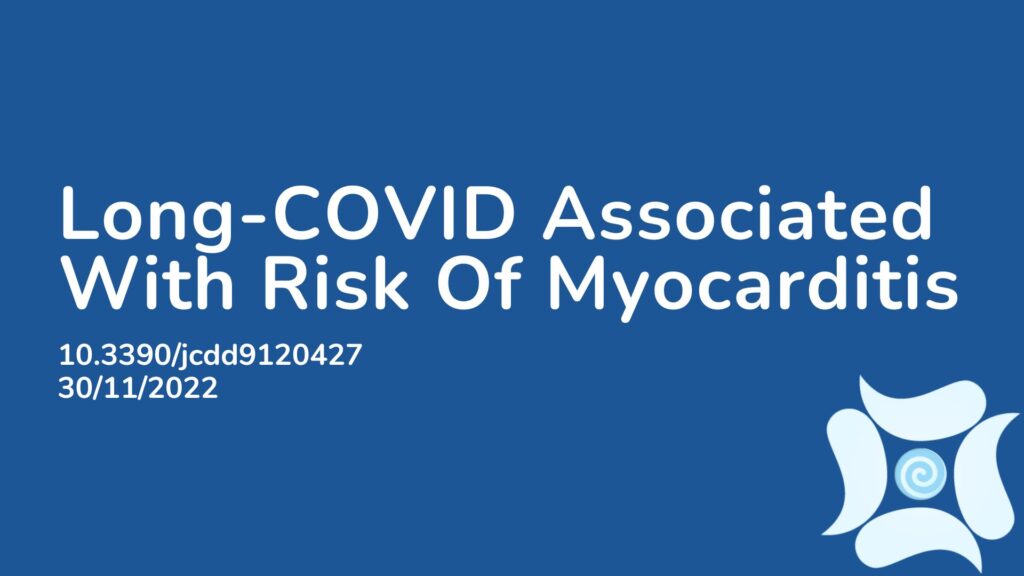Summary:
Since the outbreak of the COVID-19 virus, many people are still struggling with health consequences since their initial infection. Long-COVID is a term being used in literature to describe persistent symptoms, varying in nature, that are still present weeks after the acute COVID-19 infection is gone. Patients are most commonly experiencing fatigue, but also cardiovascular complications such as myocarditis and heart failure. This paper is a retrospective case-series study that examined three adults with heart failure after a COVID-19 infection to determine whether their cardiovascular presentations were myocarditis due to long COVID. The authors determined after assessing these three patients that long-COVID myocarditis may be one of the severe complications of the COVID-19 virus and that these patients were also at further risk of other cardiovascular complications.
Abstract:
(1) Background: Emerging data indicate that the ongoing COVID-19 pandemic may result in long-term cardiovascular complications, among which long COVID-19 myocarditis seems to be one of the most dangerous. Clinical presentation of cardiac inflammation ranges from almost asymptomatic to life-threatening conditions, including heart failure (HF) in different stages. (2) Methods: This is a retrospective case-series study that includes three adults with different clinical presentations of heart failure on grounds of myocarditis after initial COVID-19 infection. (3) Results: All patients had new-onset symptomatic HF of various severity: from a moderately reduced left ventricular ejection fraction in one patient to significantly reduced fractions in the remaining two. Moreover, complex ventricular arrhythmias were present in one case. All patients had confirmed past myocarditis in cardiac magnetic resonance. With optimal medical treatment, cardiac function improved, and the symptoms subsided in all cases. (4) Conclusions: In COVID-19 patients, long COVID myocarditis may be one of the severe complications of this acute disease. The heterogeneity in clinical symptoms and a paucity of specific diagnostic procedures expose the patient to the significant risk of misdiagnosing and further HF development.
Article Publication Date: 30/11/2022
DOI: 10.3390/jcdd9120427



